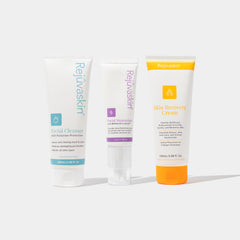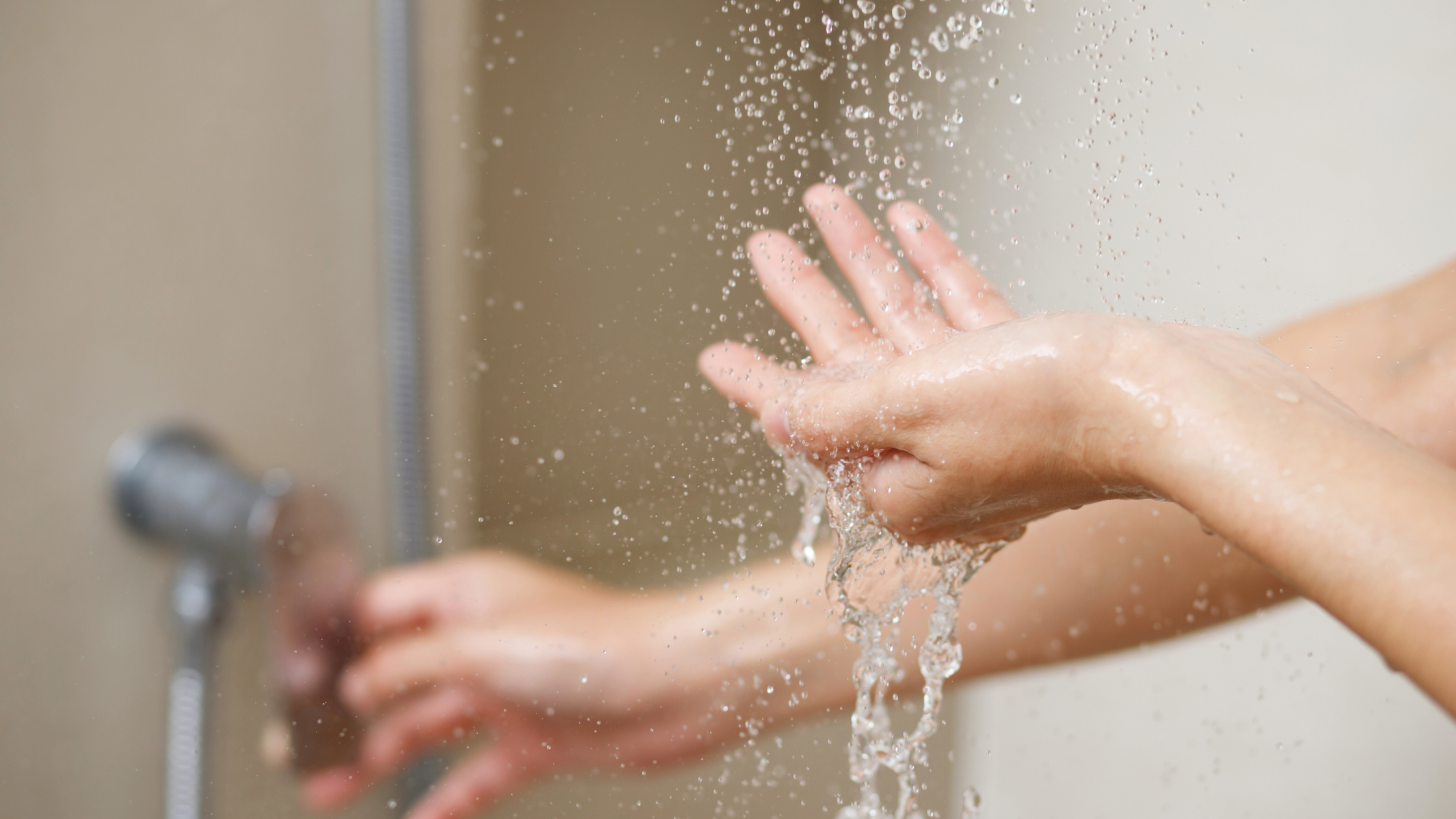What Is Hard Water—and Why It Hurts Eczema-Prone Skin
Hard water contains high levels of calcium and magnesium. While safe to drink, these minerals can react with soap to form residue on the skin. This residue disrupts the skin's natural barrier, raising pH and triggering inflammation—leading to dryness, irritation, and worsening eczema symptoms.
A large UK study found that people living in hard water areas had a higher risk of eczema, attributing around 451 cases per 10,000 adults to water hardness (British Journal of Dermatology, 2022).
The Science: Who’s At Risk?
Children with filaggrin gene mutations—a common genetic risk factor for eczema—are especially vulnerable in hard-water environments. Studies show these kids have significantly higher odds of developing eczema (Mcnally et al., 1998), (Halling et al., 2020).
While randomized trials like SWET found no major improvement in eczema symptoms with water softeners, many families still reported small benefits in quality of life (Thomas et al., 2011).
Emerging trials like SOFTER suggest that installing a water softener from birth may lower eczema risk—but results are preliminary (Jabbar-Lopez et al., 2019).
Smart Steps at Home: Soften Your Impact
-
Check your tap: Water with more than 120 mg/L CaCO₃ is considered hard.
-
Try filtration: Use affordable faucet or shower filters, or consider whole-home softeners.
-
Adjust bathing habits: Use lukewarm water, gentle cleansers, pat dry, and moisturize immediately.
A European study found that hard water and swimming in chlorinated pools further increase eczema risk—especially in children with atopy (Chaumont et al., 2012).
Rejûvaskin’s Soothing Support: Gentle, Effective, Eczema-Safe
Even if your water isn’t perfect, your skincare can be. Rejûvaskin products are crafted to support eczema-prone skin:
-
Skin Recovery Cream: Calms, hydrates, and restores barrier function.
-
Revita-D Facial Moisturizer: Delivers vitamin D3 and ceramides—ideal after a gentle cleanse.
Fragrance-free, non-comedogenic, and designed for sensitive skin, these formulas are your daily defense—especially when combined with smart water practices.
Bottom Line: Yes—Your Tap Water Matters
Hard water can worsen eczema by damaging the skin barrier. While softeners aren't a cure, thoughtful bathing routines and supportive skincare can help reduce irritation and prevent flare-ups—especially in children at genetic risk.
Works Cited
Chaumont, A., Voisin, C., Sardella, A., & Bernard, A. (2012). Interactions between domestic water hardness, infant swimming and atopy in the development of childhood eczema. Environmental Research, 116, 52–57. link
Halling, A., Bager, P., Skov, L., Zachariae, C., Wohlfahrt, J., Melbye, M., & Thyssen, J. (2020). The interaction between filaggrin mutations and hard domestic water and the risk of early‐onset atopic dermatitis. British Journal of Dermatology, 183, n.p. link
Jabbar-Lopez, Z., Gurung, N., Greenblatt, D., Briley, A., Chalmers, J., Thomas, K., ... & Flohr, C. (2019). Protocol for an outcome assessor-blinded pilot randomised controlled trial of an ion-exchange water softener for the prevention of atopic eczema in neonates: The Softened Water for Eczema Prevention (SOFTER) trial. BMJ Open, 9, e027168. link
McNally, N., Williams, H., Phillips, D., Smallman-Raynor, M., Lewis, S., Venn, A., & Britton, J. (1998). Atopic eczema and domestic water hardness. The Lancet, 352(9127), 527–531. link
Thomas, K. S., Koller, K., Dean, T., O’Leary, C., Sach, T., Frost, A., ... & Williams, H. C. (2011). A multicentre randomised controlled trial and economic evaluation of ion-exchange water softeners for the treatment of eczema in children: The Softened Water Eczema Trial (SWET). Health Technology Assessment, 15(8), v–vi, 1–156. link
Williams, H. C. (2022). Living in areas with hard water may increase risk of eczema in adults in the UK. British Journal of Dermatology, 187, n.p. link





















Leave a comment